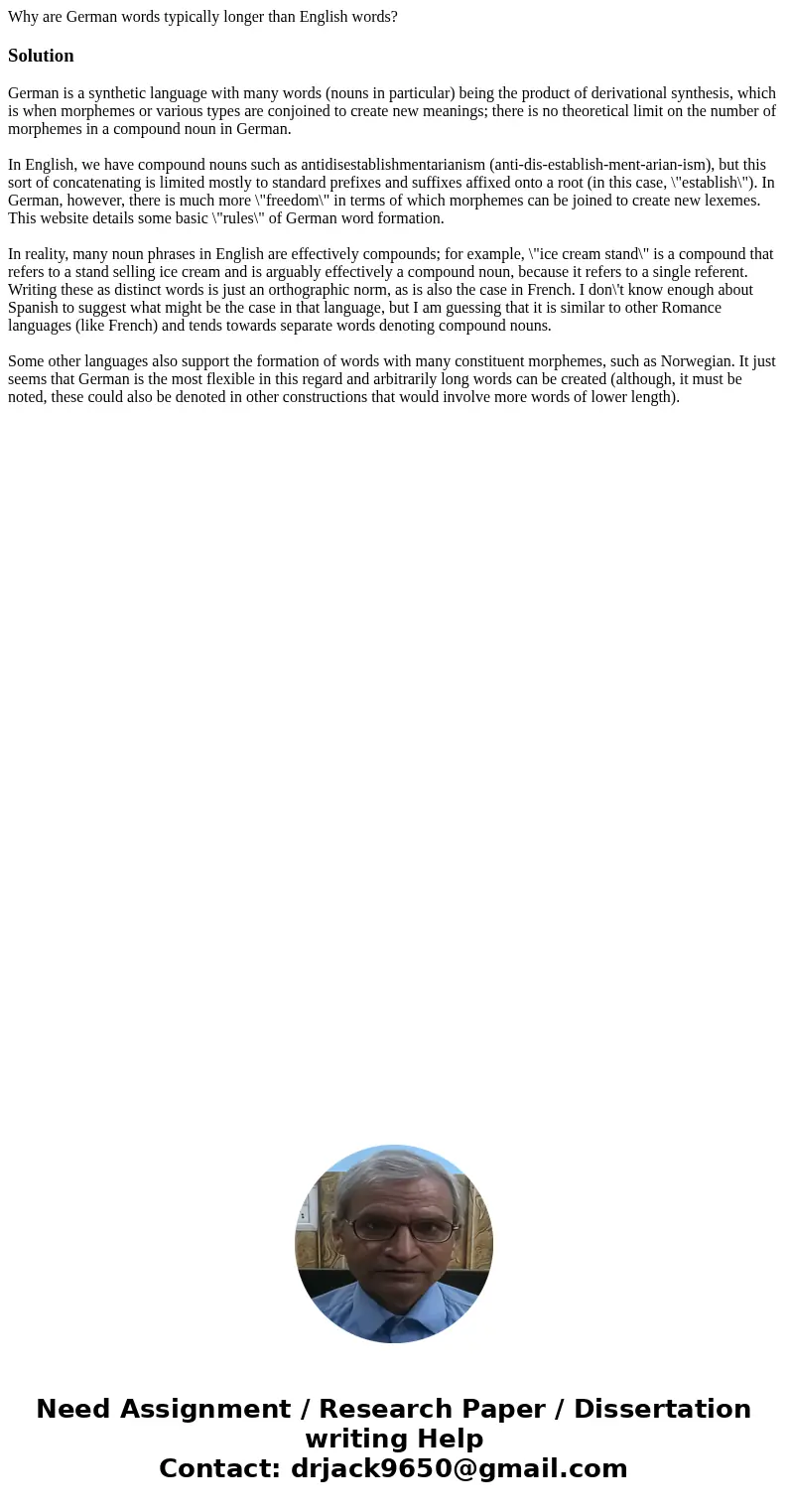Why are German words typically longer than English words Sol
Solution
German is a synthetic language with many words (nouns in particular) being the product of derivational synthesis, which is when morphemes or various types are conjoined to create new meanings; there is no theoretical limit on the number of morphemes in a compound noun in German.
In English, we have compound nouns such as antidisestablishmentarianism (anti-dis-establish-ment-arian-ism), but this sort of concatenating is limited mostly to standard prefixes and suffixes affixed onto a root (in this case, \"establish\"). In German, however, there is much more \"freedom\" in terms of which morphemes can be joined to create new lexemes. This website details some basic \"rules\" of German word formation.
In reality, many noun phrases in English are effectively compounds; for example, \"ice cream stand\" is a compound that refers to a stand selling ice cream and is arguably effectively a compound noun, because it refers to a single referent. Writing these as distinct words is just an orthographic norm, as is also the case in French. I don\'t know enough about Spanish to suggest what might be the case in that language, but I am guessing that it is similar to other Romance languages (like French) and tends towards separate words denoting compound nouns.
Some other languages also support the formation of words with many constituent morphemes, such as Norwegian. It just seems that German is the most flexible in this regard and arbitrarily long words can be created (although, it must be noted, these could also be denoted in other constructions that would involve more words of lower length).

 Homework Sourse
Homework Sourse